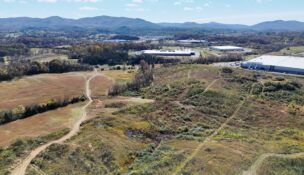FAA picks Virginia Tech for drone testing
Virginia Tech is one of six sites nationwide selected by the Federal Aviation Administration for research and testing of unmanned aircraft systems (UAS), commonly known as drones.
The FAA picked the sites from 25 proposals from 24 states.
The agency said Virginia Tech plans to “conduct UAS failure mode testing and identify and evaluate operational and technical risks areas.”
The Virginia Tech proposal includes test locations in Virginia and New Jersey.
New Jersey and Virginia submitted a joint proposal led by Virginia Tech as the Mid-Atlantic Aviation Partnership. The partnership includes academic, industry, state government and economic development organizations.
The University of Maryland, College Park, was the lead agency in the Maryland application for an FAA test site, which was not selected. The university will become part of the Mid-Atlantic Aviation Partnership.
The Commonwealth of Virginia will award $1 million during fiscal year 2014 to Virginia Tech to operate an unmanned aircraft systems test site. In the introduced budget, Gov. Bob McDonnell has recommended an additional $1.6 million over the next two fiscal years for the project.
The five other winning proposals were from the University of Alaska, the State of Nevada, New York’s Griffiss International Airport, North Dakota Department of Commerce and Texas A&M University – Corpus Christi.
The test site selection is the result of moves by Congress to have drones share the airspace with airplanes by the end of 2015.
In choosing the six test site operators, the FAA considered geography, climate, location of ground infrastructure, research needs, airspace use, safety, aviation experience and risk.
The first site is expected to begin operation within 180 days, according to published reports.
Among other requirements, test site operators must comply with federal, state, and other laws protecting right to privacy, have publicly available privacy policies and a written plan for data use and retention, and conduct an annual review of privacy practices that allows for public comment.
Integrating drones into the national airspace could add more than $13.6 billion to the nation’s economy by the end of the decade, reaching as high as $82.1 billion by 2025, according to the Association for Unmanned Vehicle Systems International.
n

















